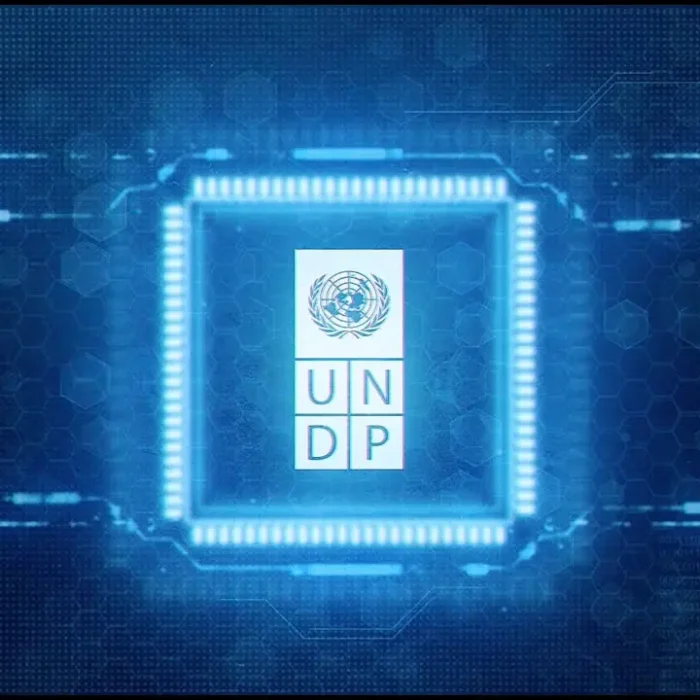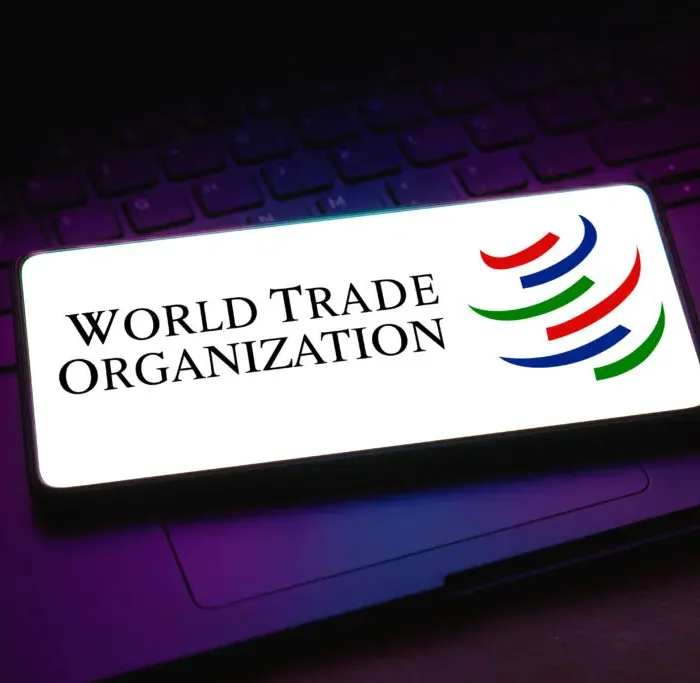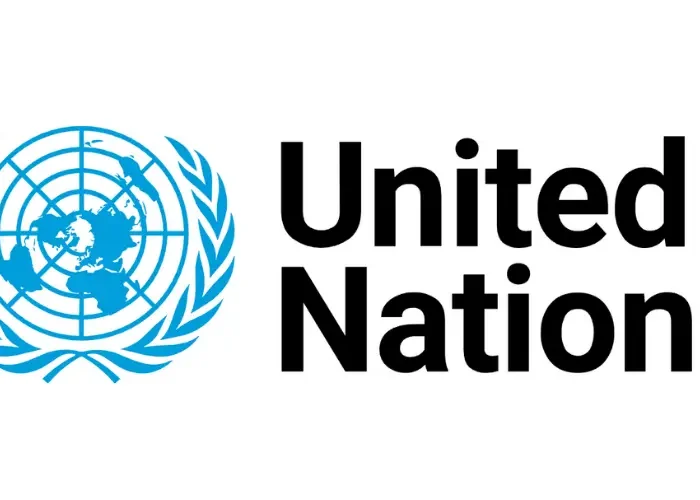UN Portfolio: Global Cloud Transformation & FOBOS Innovation
Dame Luthas - UN Portfolio: Global Cloud Transformation & FOBOS Innovation
1. Executive Summary
As Program Manager, Solutions Architect, and Technical Lead at the United Nations, I orchestrated the landmark global cloud migration for 18 UN partner organizations, encompassing over 50,000 users. This strategic initiative resulted in a 35% reduction in IT infrastructure costs. Concurrently, I spearheaded the development of FOBOS, an innovative custom software solution that automated UN field deployments, achieving a 50% reduction in deployment times and a 70% decrease in associated outages, significantly enhancing operational capabilities in critical environments.
…

2. The Challenge
Initial Situation: The United Nations faced operational inefficiencies due to disparate, aging on-premise IT infrastructures across numerous global agencies. This led to high operational costs, data silos, inconsistent service delivery, and significant challenges in rapidly deploying technology for field operations, especially in difficult and hazardous terrains. Security of sensitive UN data and global accessibility were paramount concerns.
Key Objectives: The primary goals were to modernize the IT landscape, achieve substantial reductions in operational costs, bolster data security and ensure global accessibility, enhance inter-agency collaboration, streamline IT service management, and enable faster, more reliable technology deployments for UN missions worldwide, particularly in crisis response scenarios.
Scale & Complexity: The initiative spanned 18+ UN partner organizations (including UNDP, UNICEF, UNWomen), impacting between 250 to over 50,000 users per agency or project. Operations covered more than 300 global sites, navigating diverse political and technical landscapes, varying levels of existing infrastructure maturity, and the critical need to overcome language and cultural barriers. The project also involved the migration and management of over 20TB of critical data.
3. My Role & Responsibilities
Program Manager / Solutions Architect / Technical Lead
- Led overall program strategy, meticulous planning, and hands-on execution for the global cloud migrations and the FOBOS innovation initiative.
- Designed robust target cloud architectures (primarily Microsoft Azure and Office 365, with strategic considerations for AWS/GCP where appropriate) and architected the FOBOS application.
- Managed and effectively coordinated efforts across diverse, cross-functional technical teams, multiple UN agencies, and numerous global locations.
- Developed and implemented comprehensive migration plans, proactive risk mitigation strategies, and impactful change management programs for user adoption.
- Served as the primary Technical Lead and Customer Focal Point for global critical enterprise communication services and public cloud integration efforts.
- Directed the full lifecycle of FOBOS development, from initial conceptualization and detailed design through to coding, rigorous testing, and successful deployment.
- Ensured strict adherence to UN mandates, ISO 27001 standards for information security, and global compliance requirements.
- Oversaw stakeholder communications across all levels, managed vendor relations, and maintained diligent budget management for all assigned projects.
4. The Solution & Approach
Strategic Approach: A phased migration strategy was employed, initiating with pilot programs for key UN agencies to refine processes and build stakeholder confidence. A centralized governance model for cloud adoption was established to ensure consistency and best practices. For the FOBOS solution, a user-centric design approach was paramount, focusing directly on the specific and often challenging needs of UN field deployments. A culture of Continuous Service Improvement was actively fostered throughout the program.
Methodologies Used: A hybrid approach leveraging Agile and Waterfall methodologies (adapted to specific project and agency needs), complemented by PRINCE2 principles, ITIL v3 for robust service management post-migration, and PMI best practices for overall project governance.

Key Actions & Implementations:
- Conducted in-depth assessments of existing IT infrastructure, operational processes, and business requirements for each of the 18 participating UN partner organizations.
- Developed a standardized, yet flexible, cloud adoption framework and a detailed migration roadmap tailored to the UN’s unique global operational context and security mandates.
- Led the successful migration of over 10,000 UN users to Microsoft Office 365 and onboarded 500+ users to Dynamics 365, enhancing collaboration and productivity.
- Architected and managed complex Azure environments hosting over 250 virtual machines, 10,000+ identities, and more than 50 critical applications.
- Designed, developed, and deployed FOBOS, an innovative customized software solution to automate and streamline UN technology deployments in challenging and remote environments.
- Implemented comprehensive security measures including Multi-Factor Authentication (MFA), advanced threat protection protocols, robust data encryption, and utilized Azure security services for monitoring and defense.
- Successfully executed the migration of over 20TB of critical UN data, ensuring complete data integrity and adherence to stringent regulatory compliance.
- Provided extensive training sessions, developed comprehensive documentation, and led change management support initiatives for thousands of UN staff globally to ensure smooth transitions.
- Implemented ITSM dashboards based on ISO 27001 standards to improve visibility, reporting, and management of IT services.
6. Skills & Expertise Demonstrated
- Project/Program Management: Global Program Delivery, Agile/Waterfall/PRINCE2 Methodologies, Financial & Budget Management, Risk Management, Stakeholder Engagement.
- Technical Leadership & Solutions Architecture: Cloud Architecture (Azure, M365, AWS, GCP), System Migration Strategy, Infrastructure Design, Custom Software Development Lifecycle (FOBOS), Enterprise Architecture.
- Cloud Technologies: Microsoft Azure (IaaS, PaaS, Security Center), Microsoft 365 Suite (Office 365, Teams, Exchange Online, SharePoint, Entra ID, Dynamics 365), Foundational AWS & GCP.
- IT Operations & Service Management: ITSM Frameworks (ITIL v3), ISO 27001 Implementation, Business Continuity & Disaster Recovery Planning, Global IT Support Operations, 24×7 Incident Response.
- Security & Compliance: Cybersecurity Strategy & Implementation, Data Security & Privacy (GDPR Adherence), ISO 27001 Controls, Identity & Access Management (IAM), Anti-Tamper Solutions, Comprehensive Risk Assessment.
- Change Management & Training: Large-Scale User Adoption Strategies, Training Program Development & Global Delivery, Executive & End-User Communication Planning.
- Cross-Cultural Communication & Collaboration: Leading and motivating diverse global teams, navigating international political and bureaucratic landscapes, effective communication across numerous UN agencies and cultures.
7. Technologies & Tools Leveraged
- Cloud Platforms: Microsoft Azure, Microsoft 365 (Office 365, Teams, Exchange Online, SharePoint Online, OneDrive, Dynamics 365, Azure Active Directory/Entra ID). Exposure to AWS and GCP for specific use-cases.
- Microsoft Stack: Windows Server (multiple versions including 2008-2022), Active Directory Domain Services, System Center Suite (especially SCOM), PowerShell for automation and scripting.
- Virtualization: VMware vSphere, Microsoft Hyper-V.
- Databases & Data Management: SQL Server, various data migration tools and techniques.
- Networking: Cisco routing & switching, VPN technologies, Firewalls (various vendors), SD-WAN concepts and implementations.
- ITSM Tools: ServiceNow (or equivalent UN-specific system), Custom-built ITSM Dashboards for monitoring and reporting.
- Project Management Software: Microsoft Project, Jira, Smartsheet.
- Automation/Development (FOBOS): Core technologies included PowerShell for scripting, .NET framework for application components, and integration with various UN backend systems and APIs.
8. Challenges & Lessons Learned
Challenges
- Navigating the inherently complex inter-agency politics and bureaucratic processes within the vast United Nations system.
- Standardizing technology solutions and approaches across 18 diverse and often independent-minded partner organizations, each with unique legacy systems.
- Securing consistent resources, funding, and widespread buy-in for innovative and transformative projects like FOBOS.
- Managing the significant logistical complexities associated with global deployments, particularly in remote, underdeveloped, and sometimes hazardous field locations.
Lessons Learned:
- The paramount importance of robust, transparent, and continuous stakeholder communication in large, federated organizations to build trust and ensure alignment.
- The strategic value of a phased, iterative project approach, incorporating pilot programs to demonstrate value early, gather feedback, and build momentum for broader adoption.
- The critical and non-negotiable need for strong, empathetic change management strategies to ensure successful user adoption of new technologies and re-engineered processes.
- The transformative power of custom automation solutions (exemplified by FOBOS) to solve unique and deeply entrenched operational challenges where standard off-the-shelf solutions prove inadequate.
Portfolio: Global Cloud Transformation & FOBOS Innovation
United Nations Program Showcase
1. Executive Summary
As Program Manager, Solutions Architect, and Technical Lead at the United Nations, I orchestrated the landmark global cloud migration for 18 UN partner organizations, encompassing over 50,000 users. This strategic initiative resulted in a 35% reduction in IT infrastructure costs. Concurrently, I spearheaded the development of FOBOS, an innovative custom software solution that automated UN field deployments, achieving a 50% reduction in deployment times and a 70% decrease in associated outages, significantly enhancing operational capabilities in critical environments.

2. The Challenge
Initial Situation: The United Nations faced operational inefficiencies due to disparate, aging on-premise IT infrastructures across numerous global agencies. This led to high operational costs, data silos, inconsistent service delivery, and significant challenges in rapidly deploying technology for field operations, especially in difficult and hazardous terrains. Security of sensitive UN data and global accessibility were paramount concerns.
Key Objectives: The primary goals were to modernize the IT landscape, achieve substantial reductions in operational costs, bolster data security and ensure global accessibility, enhance inter-agency collaboration, streamline IT service management, and enable faster, more reliable technology deployments for UN missions worldwide, particularly in crisis response scenarios.
Scale & Complexity: The initiative spanned 18+ UN partner organizations (including UNDP, UNICEF, UNWomen), impacting between 250 to over 50,000 users per agency or project. Operations covered more than 300 global sites, navigating diverse political and technical landscapes, varying levels of existing infrastructure maturity, and the critical need to overcome language and cultural barriers. The project also involved the migration and management of over 20TB of critical data.

3. My Role & Responsibilities
Program Manager / Solutions Architect / Technical Lead
- Led overall program strategy, meticulous planning, and hands-on execution for the global cloud migrations and the FOBOS innovation initiative.
- Designed robust target cloud architectures (primarily Microsoft Azure and Office 365, with strategic considerations for AWS/GCP where appropriate) and architected the FOBOS application.
- Managed and effectively coordinated efforts across diverse, cross-functional technical teams, multiple UN agencies, and numerous global locations.
- Developed and implemented comprehensive migration plans, proactive risk mitigation strategies, and impactful change management programs for user adoption.
- Served as the primary Technical Lead and Customer Focal Point for global critical enterprise communication services and public cloud integration efforts.
- Directed the full lifecycle of FOBOS development, from initial conceptualization and detailed design through to coding, rigorous testing, and successful deployment.
- Ensured strict adherence to UN mandates, ISO 27001 standards for information security, and global compliance requirements.
- Oversaw stakeholder communications across all levels, managed vendor relations, and maintained diligent budget management for all assigned projects.
4. The Solution & Approach
Strategic Approach: A phased migration strategy was employed, initiating with pilot programs for key UN agencies to refine processes and build stakeholder confidence. A centralized governance model for cloud adoption was established to ensure consistency and best practices. For the FOBOS solution, a user-centric design approach was paramount, focusing directly on the specific and often challenging needs of UN field deployments. A culture of Continuous Service Improvement was actively fostered throughout the program.
Methodologies Used: A hybrid approach leveraging Agile and Waterfall methodologies (adapted to specific project and agency needs), complemented by PRINCE2 principles, ITIL v3 for robust service management post-migration, and PMI best practices for overall project governance.

Key Actions & Implementations:
- Conducted in-depth assessments of existing IT infrastructure, operational processes, and business requirements for each of the 18 participating UN partner organizations.
- Developed a standardized, yet flexible, cloud adoption framework and a detailed migration roadmap tailored to the UN's unique global operational context and security mandates.
- Led the successful migration of over 10,000 UN users to Microsoft Office 365 and onboarded 500+ users to Dynamics 365, enhancing collaboration and productivity.
- Architected and managed complex Azure environments hosting over 250 virtual machines, 10,000+ identities, and more than 50 critical applications.
- Designed, developed, and deployed FOBOS, an innovative customized software solution to automate and streamline UN technology deployments in challenging and remote environments.
- Implemented comprehensive security measures including Multi-Factor Authentication (MFA), advanced threat protection protocols, robust data encryption, and utilized Azure security services for monitoring and defense.
- Successfully executed the migration of over 20TB of critical UN data, ensuring complete data integrity and adherence to stringent regulatory compliance.
- Provided extensive training sessions, developed comprehensive documentation, and led change management support initiatives for thousands of UN staff globally to ensure smooth transitions.
- Implemented ITSM dashboards based on ISO 27001 standards to improve visibility, reporting, and management of IT services.
5. Impact & Quantifiable Results
35%
Cost Reduction
50%
Time Saved (FOBOS)
70%
Fewer Outages
40%
Security Incidents ↓
- Cost Reduction: Achieved a 35% reduction in IT infrastructure costs across 18 UN partner organizations. Delivered 25-28% IT support cost savings through Microsoft 365 migration.
- Efficiency Gains: The FOBOS solution reduced UN field deployment time by 50% and decreased associated IT outages by 70%.
- Improved Performance/Accessibility: Enhanced global data accessibility for UN operations by 30%.
- Risk Mitigation: Reduced security incidents by 40% through proactive threat management and best practice implementation. Decreased service outages by 60% and recurring incidents by 50%.
- User Adoption/Satisfaction: Successfully migrated over 10,000 UN users to Microsoft Office 365, leading to a 15% increase in user satisfaction. Onboarded 500+ users to Dynamics 365.
- Innovation: FOBOS was recognized as a pioneering, innovative solution, setting new benchmarks for UN technology deployments in challenging global contexts.
- Project Delivery Excellence: Consistently delivered 95-98% of projects on time and within budget, demonstrating strong execution capabilities.
6. Skills & Expertise Demonstrated
- Project/Program Management: Global Program Delivery, Agile/Waterfall/PRINCE2 Methodologies, Financial & Budget Management, Risk Management, Stakeholder Engagement.
- Technical Leadership & Solutions Architecture: Cloud Architecture (Azure, M365, AWS, GCP), System Migration Strategy, Infrastructure Design, Custom Software Development Lifecycle (FOBOS), Enterprise Architecture.
- Cloud Technologies: Microsoft Azure (IaaS, PaaS, Security Center), Microsoft 365 Suite (Office 365, Teams, Exchange Online, SharePoint, Entra ID, Dynamics 365), Foundational AWS & GCP.
- IT Operations & Service Management: ITSM Frameworks (ITIL v3), ISO 27001 Implementation, Business Continuity & Disaster Recovery Planning, Global IT Support Operations, 24x7 Incident Response.
- Security & Compliance: Cybersecurity Strategy & Implementation, Data Security & Privacy (GDPR Adherence), ISO 27001 Controls, Identity & Access Management (IAM), Anti-Tamper Solutions, Comprehensive Risk Assessment.
- Change Management & Training: Large-Scale User Adoption Strategies, Training Program Development & Global Delivery, Executive & End-User Communication Planning.
- Cross-Cultural Communication & Collaboration: Leading and motivating diverse global teams, navigating international political and bureaucratic landscapes, effective communication across numerous UN agencies and cultures.
7. Technologies & Tools Leveraged

- Cloud Platforms: Microsoft Azure, Microsoft 365 (Office 365, Teams, Exchange Online, SharePoint Online, OneDrive, Dynamics 365, Azure Active Directory/Entra ID). Exposure to AWS and GCP for specific use-cases.
- Microsoft Stack: Windows Server (multiple versions including 2008-2022), Active Directory Domain Services, System Center Suite (especially SCOM), PowerShell for automation and scripting.
- Virtualization: VMware vSphere, Microsoft Hyper-V.
- Databases & Data Management: SQL Server, various data migration tools and techniques.
- Networking: Cisco routing & switching, VPN technologies, Firewalls (various vendors), SD-WAN concepts and implementations.
- ITSM Tools: ServiceNow (or equivalent UN-specific system), Custom-built ITSM Dashboards for monitoring and reporting.
- Project Management Software: Microsoft Project, Jira, Smartsheet.
- Automation/Development (FOBOS): Core technologies included PowerShell for scripting, .NET framework for application components, and integration with various UN backend systems and APIs.
8. Challenges & Lessons Learned
Challenges Faced:
- Navigating the inherently complex inter-agency politics and bureaucratic processes within the vast United Nations system.
- Standardizing technology solutions and approaches across 18 diverse and often independent-minded partner organizations, each with unique legacy systems.
- Securing consistent resources, funding, and widespread buy-in for innovative and transformative projects like FOBOS.
- Managing the significant logistical complexities associated with global deployments, particularly in remote, underdeveloped, and sometimes hazardous field locations.
Key Lessons Learned:
- The paramount importance of robust, transparent, and continuous stakeholder communication in large, federated organizations to build trust and ensure alignment.
- The strategic value of a phased, iterative project approach, incorporating pilot programs to demonstrate value early, gather feedback, and build momentum for broader adoption.
- The critical and non-negotiable need for strong, empathetic change management strategies to ensure successful user adoption of new technologies and re-engineered processes.
- The transformative power of custom automation solutions (exemplified by FOBOS) to solve unique and deeply entrenched operational challenges.





